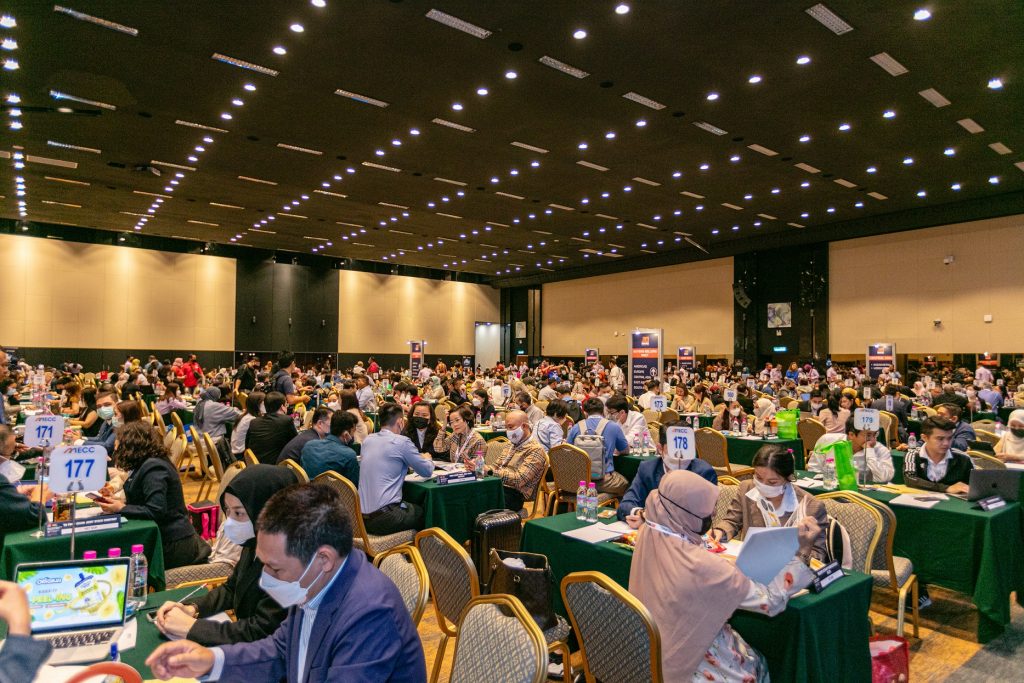 KUALA LUMPUR, March 25(Bernama) — The Halal Industry Development Corporation (HDC) expects to attract RM1.0 billion in investments from local and foreign investors for all halal parks in the country this year.
KUALA LUMPUR, March 25(Bernama) — The Halal Industry Development Corporation (HDC) expects to attract RM1.0 billion in investments from local and foreign investors for all halal parks in the country this year.
Its Halal Park Development Unit head Dr Nor Azman Ngah said the number could be bigger, as HDC plans to add more halal parks, alongside additional investments from existing companies.
“We’re working with Mara on the upgrading and conversion of five of its industrial plants into halal parks,” Nor Azman told Bernama on the sidelines of the 2nd Global Free Trade & Special Economic Zone Exhibition & Summit here, today.
He said of late, there had been a lot of interest among Japanese and Korean companies, in investing in the halal parks in Malaysia.
“There was good response from Singaporean companies as well, especially in Johor.
“HDC is also assisting them through business matching,” he added.
Currently there are 24 halal parks located throughout the country, of which 13 were awarded Halmas status.
HDC accords the Halmas status to halal park operators who comply with requirements under the HDC Designated Halal Park Development Guidelines.
Under the accreditation, the halal operators, industry players and logistic companies can enjoy incentives provided by the HDC.
Nor Azman said each halal park is focused on specific industries, which includes biotechnology, food and beverages, pharmaceutical and education.
At present, more than 140 companies, mostly small medium enterprises, and 15 multinationals are operating in various halal parks throughout the country, with an export value of more than RM500 million.
— BERNAMA
Article Two
Halal draw for foreign firms
MORE Japanese and Korean investors are coming here to invest in the Malaysian halal industry, Halal Industry Development Corporation Sdn Bhd special project general manager Nor Azman Ngah said yesterday.
“We have closed a deal with a Japanese investor which manufactures mayonnaise to market into the Middle East and we’re in the process of negotiating with more Japanese and Korean companies to participate in our halal parks.”
“Five other Japanese firms have already expressed their interest and its just the matter of time before we eventually see a partnership.”
China, Russia and India are reportedly also among nations which have requested for Malaysia’s expertise on food standard rating and halal certification as Malaysia is the only country whose government oversees food standard rating and halal certification.
Halal parks are communities of halal-oriented businesses built on common property where companies are provided with infrastructure and service support to market, manufacture and sell their halal products.
Nor Azman also said there is a growing trend of Japanese companies shifting towards Malaysia from Singapore due to cost increases. “We are planning to open five more halal parks to accommodate the immense response particularly from Johor, which deals with the Singapore market.”
He added the corporation intends to achieve RM1 billion in total investments this year for its halal parks — on top of the total of RM4.8 billion in investment so far.
“Currently contributions come from 140 companies with 15 of them being multinational companies (MNCs) while the rest are small and medium enterprises (SMEs).
“The MNCs have already exported RM500 million worth of sales while the SMEs contributed RM50 million.”
He said currently there are 24 such parks in every state, which spans from 0.8ha to more than 40.4ha and the company is aiming to get more SMEs on board to participate as the halal industry in Malaysia is gaining worldwide recognition.
“ We do provide assistance to the SMEs in terms of financial, capacity development, training, marketing and factories as well.”
“In the halal parks, companies are able to utilise the area as their production house, be it food, pharmaceuticals — which is on the rise — and also cosmetics.”



